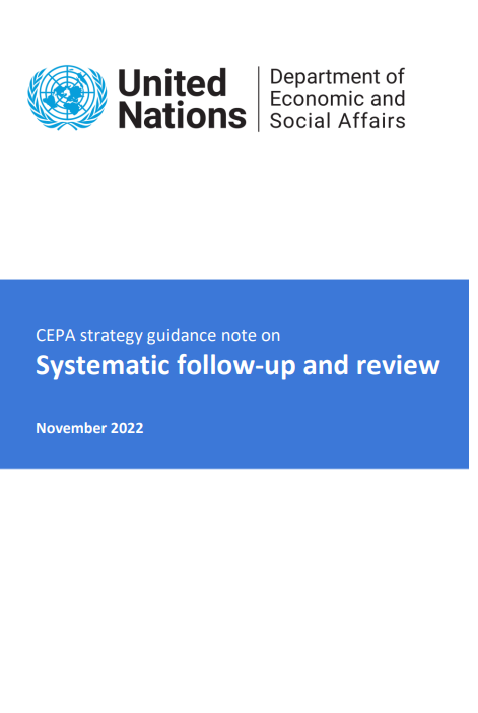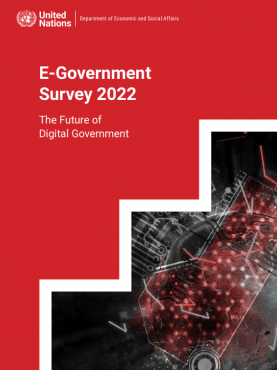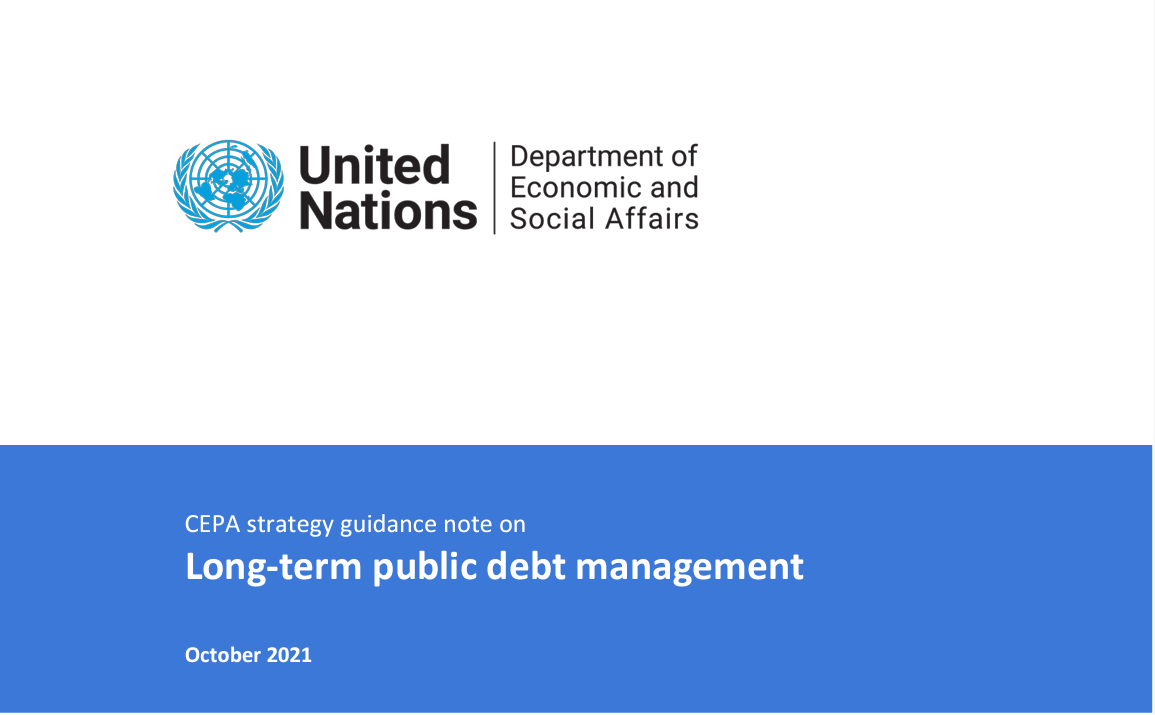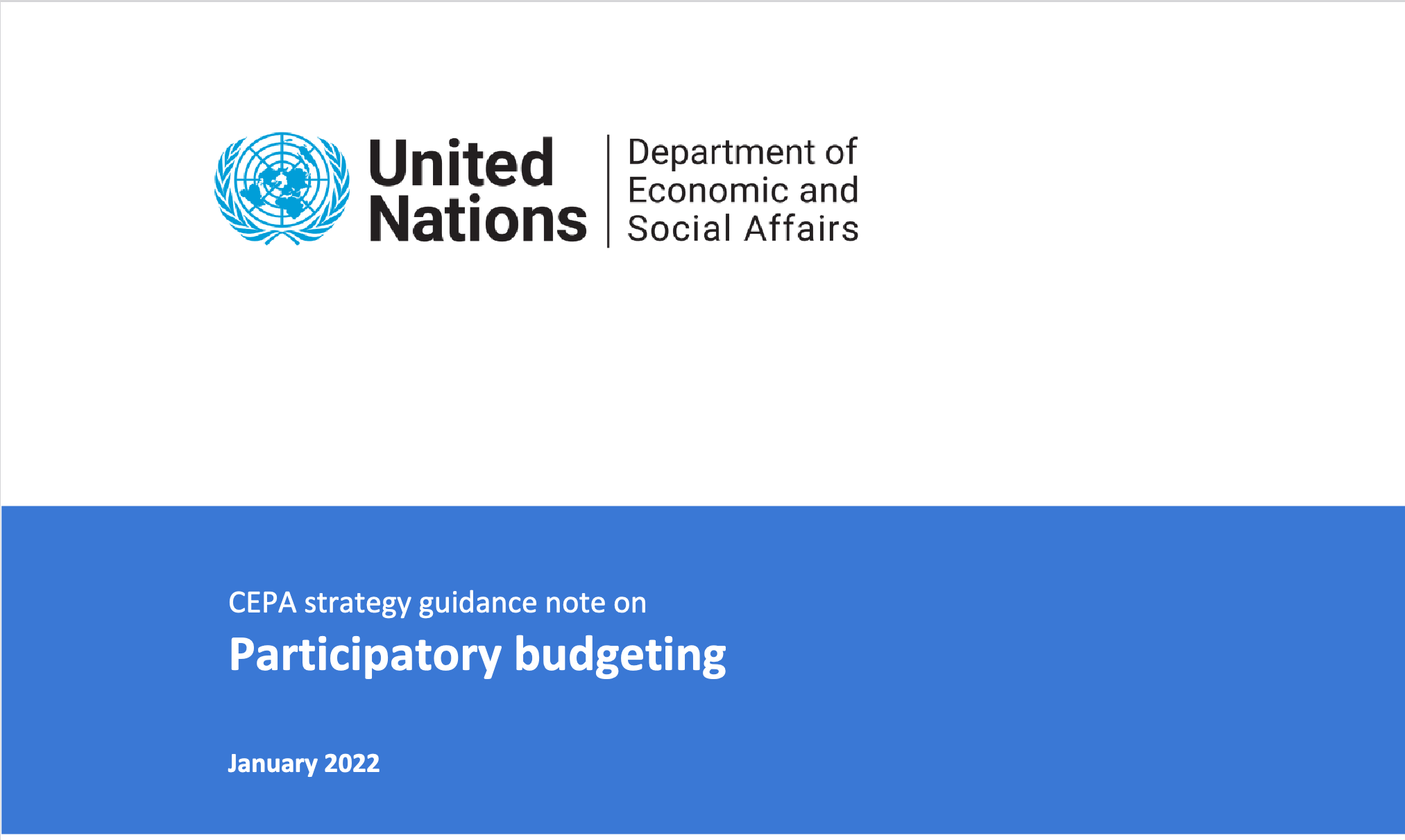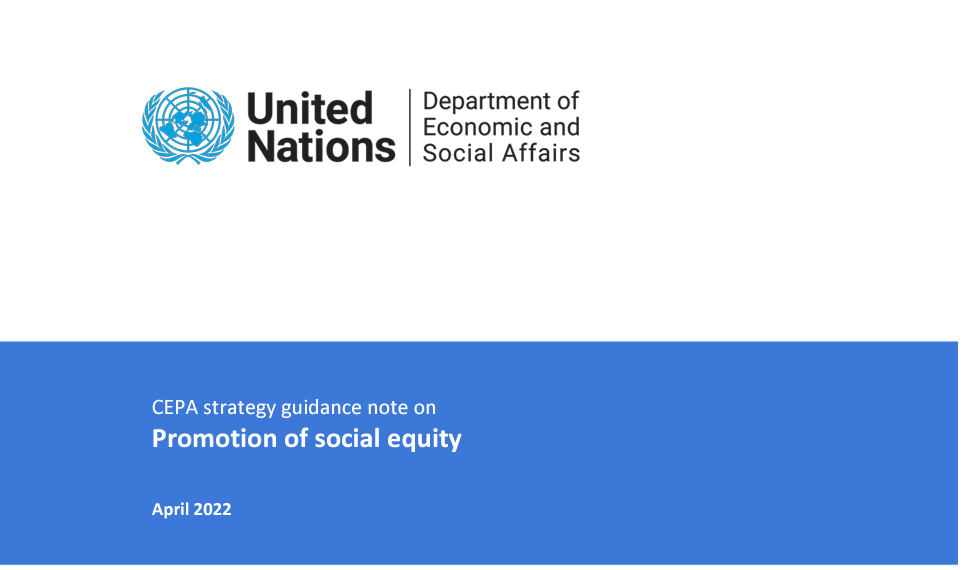| CEPA Strategy Guidance Notes | Principles of Effective Governance
CEPA strategy guidance note on systematic follow-up and review
UN DESA's work is supported by a growing series of strategy guidance notes on the many facets of effective governance for sustainable development which embody the knowledge and experience of hundreds of committed expert practitioners and academics…
| UN E-Government Surveys | Digital Government
UN E-Government Survey 2022
The United Nations E-Government Survey 2022 is the 12th edition of the United Nations’ assessment of the digital government landscape across all 193 Member States. The E-Government Survey is informed by over two decades of longitudinal research,…
| CEPA Strategy Guidance Notes | Principles of Effective Governance
CEPA strategy guidance note on long-term public debt management
This guidance note discusses the role of long-term public debt management as a strategy to promote sustainable development and intergenerational equity within the context of the 2030 Agenda.
| CEPA Strategy Guidance Notes | Principles of Effective Governance
CEPA strategy guidance note on participatory budgeting
Participatory budgeting (PB) broadly refers to the many ways in which the general public is able to interact directly with government in the design and implementation of budgetary and…
| CEPA Strategy Guidance Notes | Principles of Effective Governance
CEPA strategy guidance note on promotion of social equity
The promotion of social equity is one of the strategies for leaving no one behind, and can be understood as fairness, justice and greater equality for all in society. Achieving equity relies on an active commitment to these aims through the…
 Bienvenue aux Nations Unies
Bienvenue aux Nations Unies
